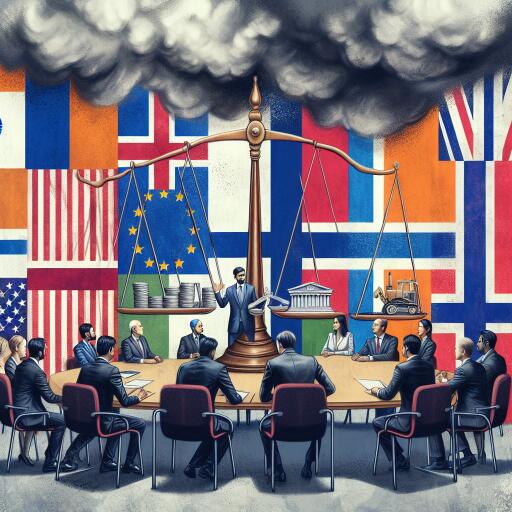Negotiations on Tariff Cuts, Chapters on Investment, Human Rights Were Major Contentious Issues: Norway Minister on India-EFTA Trade Pact
In a significant development, India and the European Free Trade Association (EFTA) inked a Trade and Economic Partnership Agreement (TEPA) signaling a new era of economic cooperation. EFTA, comprising four European states – Iceland, Liechtenstein, Norway, and Switzerland – agreed to enhance trade ties with India. Norway’s Trade Minister, Jan Christian Vestre, reflected on the process and highlighted the core issues that dominated discussions.
One of the landmark features of this agreement is the inclusion of a chapter dedicated to human rights. According to Minister Vestre, “This is the first time India has included a chapter on human rights in a free trade agreement and it is the first trade agreement globally where an investment chapter has been included.” The agreement promises to boost investments and generate substantial employment opportunities in India, with commitments to promote investments set to increase foreign direct investment stock by USD 100 billion over the next 15 years and generate 1 million direct jobs.
The negotiations, spanning several years, centered on matters such as tariff lines, the inclusion and exclusion of commodities, a human rights clause, and an investment chapter. Vestre remarked on the complexity of these issues, “We spent a significant amount of time discussing the tariff lines, goods, and services to be included in the duty-free commitments. We also delved into the sustainable development chapter referring to human rights and international conventions, a new approach for India which is commendable.”
The agreement, composed of 14 chapters, aims to provide comprehensive market access for goods, establish rules of origin, enhance trade facilitation, address trade remedies, and promote sanitary and phytosanitary measures, among other goals. It is designed to be fair and balanced, granting equal opportunities to all signatories.
“I am incredibly proud of the agreement we have reached, which not only represents a fair deal but also paves the way for a new kind of cooperative framework. The journey to this agreement required creativity, diligent work, and passion from all involved,” Vestre added.
The discussions intensified over the last year, culminating in this agreement. A chapter on human rights is particularly significant for Norway, addressing various international conventions important for women’s rights, gender equality, labor rights, and human rights. “Trade can be a powerful tool for promoting sustainable development. We are keen to engage in dialogue, share experiences, and leverage trade to create a more sustainable and equitable world,” Vestre elaborated.
EFTA has agreed to open up 92.2% of its tariff lines, covering almost all of India’s exports to these countries. Meanwhile, India has offered access to 82.7% of its tariff lines, catering to a significant portion of EFTA’s exports. This agreement maintains a special focus on crucial sectors such as agriculture, textiles, services, construction, technology, maritime industries, and renewable energy, promising widespread benefits across various industries.
This groundbreaking agreement between India and EFTA marks a monumental step forward in international trade relations, setting a new benchmark for future trade pacts by integrating essential issues such as investment, human rights, and sustainable development into the negotiation process.
